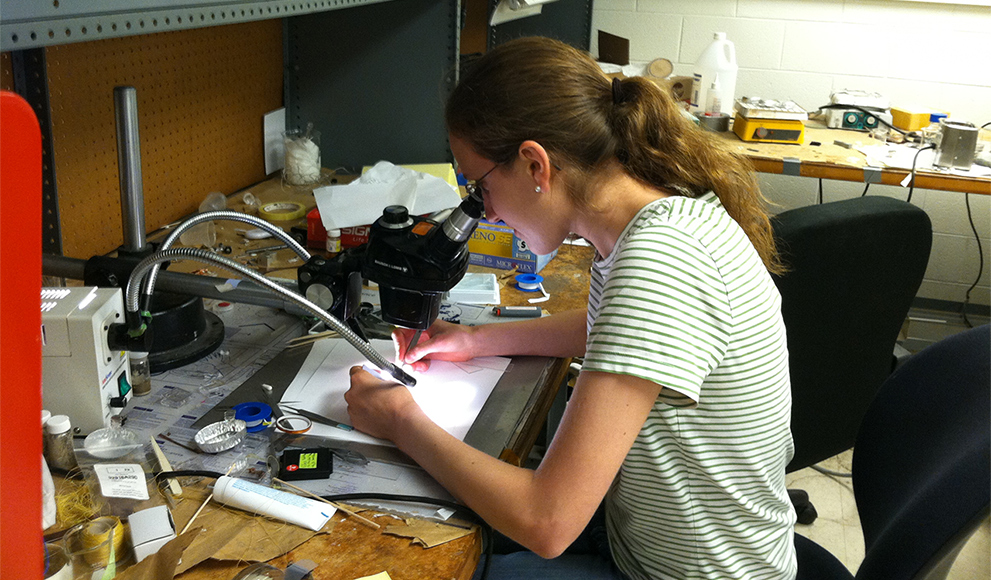For Carina Belvin ’16, Summer Means Uninterrupted Physics Research

Carina Belvin ’16 loves the summer months because she can focus solely on physics research. Until August 21, she’ll be studying the electronic phases of the Mott insulator Sr3Ir2O7 using nonlinear optics at the California Institute of Technology. Translation: “I am using lasers to study the properties of an interesting material that could be a high-temperature superconductor,” she said.
“Physics research requires both critical and creative thinking to solve problems that help us understand how the world around us works,” said Belvin. She was recently awarded a 2015 Barry M. Goldwater Scholarship, an award that supports outstanding undergraduate students in the fields of mathematics, science, and engineering, and covers the cost of tuition, fees, books, and room and board up to a maximum of $7,500 per year.
Last summer, Belvin, a physics major and math minor, studied the electronic transport properties of topological insulators through a Research Experience for Undergraduates (REU) program at Princeton University. In the summer of 2013, she studied the spin Hall effect in thin films for computer memory applications through an REU program at Cornell University.
“All of my research has been in the field of experimental condensed matter physics,” she said. “Solid materials are fascinating because they can possess a wide range of novel quantum properties, many of which can be utilized in applications such as next-generation electronics.”
Belvin has always enjoyed science and math, she said. Her interest in physics began when she took three physics courses as a first-year and found she enjoyed the challenge of problem solving. Her introduction to research came during Wintersession of her first year, in the lab of Chris Arumainayagam, professor of chemistry.
In the fall of Belvin’s sophomore year, she began working with Robbie Berg, professor of physics. “We study atom-sized defects in diamond called nitrogen-vacancy (NV) centers, which can be used as quantum bits for quantum computers,” she said. Belvin presented her work on NV centers at Wellesley’s Ruhlman Conference in 2014 and 2015; she will continue that research for her senior thesis.
For Belvin, who plans to obtain a Ph.D. in physics and pursue a career in academia, the Goldwater Scholarship is another wonderful affirmation of her hard work and achievements so far. “I am very honored to have won this prestigious award,” she said. “It gives me confidence that I can succeed in graduate school and beyond.”
Wellesley congratulates Belvin, and also Hannah Sim ’16, who received an honorable mention for the Goldwater Scholarship.
